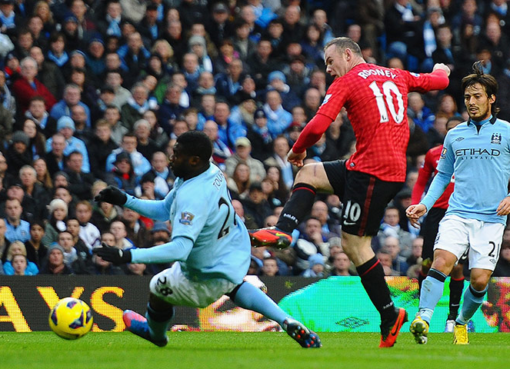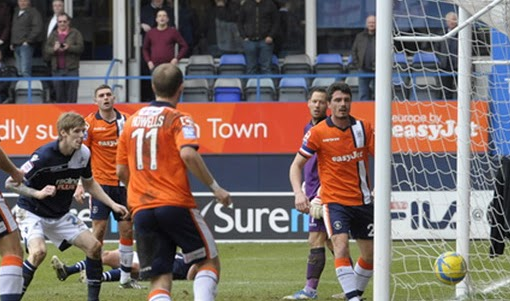Darts Final Odds: Your Ultimate Betting Guide

The culmination of any darts tournament, the final, is a spectacle of precision, skill, and intense competition. For fans and bettors alike, the darts final odds offer a fascinating insight into the perceived probabilities of each player’s chances of victory. This comprehensive article delves into the world of darts final odds, exploring the factors that influence them, how to interpret them, different betting markets available, and how to approach betting on these high stakes matches.
Understanding the Basics of Darts and Tournament Structure
Before diving into the intricacies of odds, it’s crucial to understand the fundamentals of darts and how tournaments are structured. Professional darts is typically played using a standard dartboard divided into 20 numbered segments, each with single, double, and treble scoring areas. The objective is to reduce a starting score of 501 to zero, finishing on a double.
Tournaments often employ a knockout format, with players competing in head-to-head matches until a winner is crowned. Matches are played over a set number of legs or sets, depending on the tournament’s format. The final, as the ultimate match, usually features the longest format, demanding exceptional stamina and consistency from the players.
Deciphering Darts Final Odds: Understanding the Numbers
Darts final odds represent the bookmakers’ assessment of each player’s probability of winning the match. These odds are typically displayed in one of three formats:
Fractional Odds (e.g., 2/1, 5/4): The first number represents the potential profit, while the second number represents the stake required to win that profit. For example, odds of 2/1 mean that for every £1 staked, you would win £2 in profit (plus your original stake back).
Decimal Odds (e.g., 3.00, 2.25): Decimal odds represent the total return you would receive for every £1 staked, including your original stake. For example, odds of 3.00 mean that for every £1 staked, you would receive £3 back (including your £1 stake).
American Odds (e.g., +200, -150): American odds use a plus (+) or minus (-) sign. A plus sign indicates the potential profit for a £100 stake. For example, odds of +200 mean that a £100 stake would return a profit of £200. A minus sign indicates the stake required to win £100. For example, odds of -150 mean that you would need to stake £150 to win £100.
Factors Influencing Darts Final Odds: Performance, Form, and Head-to-Head Records
Several factors contribute to the fluctuation and setting of darts final odds:
Current Form: A player’s recent performances in tournaments leading up to the final are a crucial indicator of their current form and influence the odds. Winning streaks, high averages, and consistent finishing all contribute to shorter odds.
Tournament Performance: A player’s performance throughout the tournament itself is a significant factor. Dominant wins, high averages, and crucial checkouts in earlier rounds can shorten their odds for the final.
Head-to-Head Records: The historical record between the two finalists is considered. If one player has a significantly better head-to-head record against their opponent, they are likely to be favored in the odds.
Playing Style and Matchups: The stylistic matchup between the two players can also influence the odds. Some players may have a tactical advantage over others, which bookmakers take into account.
Previous Final Experience: A player’s experience in previous finals can be a factor. Players who have performed well under pressure in high-stakes matches may be favored over those who are new to the final stage.
Public Opinion and Betting Patterns: Public opinion and the volume of bets placed on each player can also influence the odds. If a large number of bets are placed on one player, their odds may shorten.

Common Darts Final Betting Markets: Beyond the Match Winner
While betting on the match winner is the most common market, several other betting options are available for darts finals:
Set Betting: Betting on the correct score in sets.
Leg Betting: Betting on the winner of individual legs.
Most 180s: Betting on which player will score the most 180s (three treble 20s).
Highest Checkout: Betting on which player will achieve the highest checkout (the final score to reach zero).
Total 180s in the Match: Betting on the total number of 180s scored by both players in the match.
Handicap Betting: Giving one player a virtual advantage or disadvantage to even the odds.
First Leg Winner: Betting on who will win the first leg of the match.
Strategies for Betting on Darts Finals: Research and Analysis
Successful betting on darts finals requires careful research and analysis:
Analyze Player Statistics: Study player statistics such as averages, checkout percentages, and 180s per leg to assess their form and consistency.
Consider Head-to-Head Records: Review the historical record between the two finalists to identify any trends or patterns.
Assess Tournament Performance: Analyze how each player has performed throughout the tournament, paying attention to their averages, checkout percentages, and performance under pressure.
Factor in Playing Styles: Consider the stylistic matchup between the two players and how their playing styles might interact.
Stay Updated on News and Form: Keep up to date with the latest news and form updates for both players, including any injuries or changes in their preparation.
Compare Odds from Multiple Bookmakers: Use odds comparison websites to find the best odds available for your chosen bets.
Manage Your Bankroll: Set a budget for your betting and stick to it. Only wager what you can afford to lose; don’t chase losses.
Live betting markets often include:
Next Leg Winner: Betting on who will win the next leg.
Next 180: Betting on which player will score the next 180.
Checkout Method: Betting on how a player will finish a leg (e.g., double, treble, bullseye).
FAQs
What are darts’ final odds?
Darts final odds refer to the betting odds placed on the outcome of a darts championship final, such as the PDC World Darts Championship or the Premier League Darts. These odds represent the probability of a particular player winning the final and are set by bookmakers based on players’ past performances, form, and other relevant factors. Bettors use these odds to wager on who will emerge victorious in the final match of a darts tournament.
How are darts’ final odds determined?
Darts final odds are determined by bookmakers using a combination of statistical data, player form, head-to-head records, and tournament performances. Bookmakers also consider factors such as the player’s historical success in finals, recent results, mental toughness, and even crowd support. These elements are analyzed to calculate odds that reflect the likelihood of each player winning, and they can change over time based on ongoing results in the tournament.
Can I bet on specific outcomes in darts finals?
Yes, in addition to betting on the overall winner of the darts final, bookmakers offer various betting markets for specific outcomes. This includes betting on the correct score, the number of 180s hit during the match, the total number of legs played, and whether a player will win by a certain margin. There are also in-play betting options that allow you to place bets during the final, based on how the match is unfolding.
In summary
Betting on darts finals can be an exciting and potentially rewarding experience, but it requires careful research, analysis, and a sound betting strategy. By understanding the factors that influence the odds, exploring the various betting markets available, and managing your bankroll effectively, you can increase your chances of success. Remember that odds are simply a reflection of perceived probabilities, and upsets can happen in any sport, especially in the high-pressure environment of a darts final. Therefore, responsible gambling should always be a priority. By utilizing the information provided in this article, you can approach darts final odds with greater confidence and make more informed betting decisions.
To read more, Click here



Leave a Comment